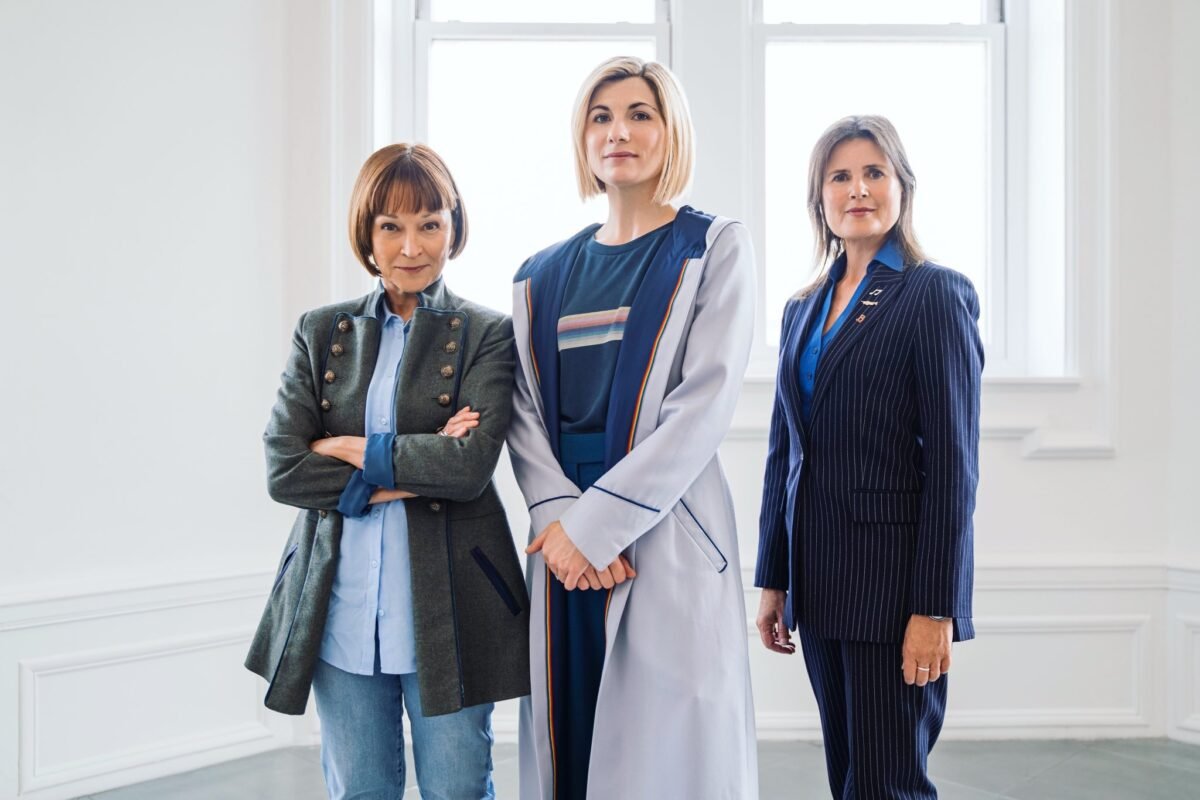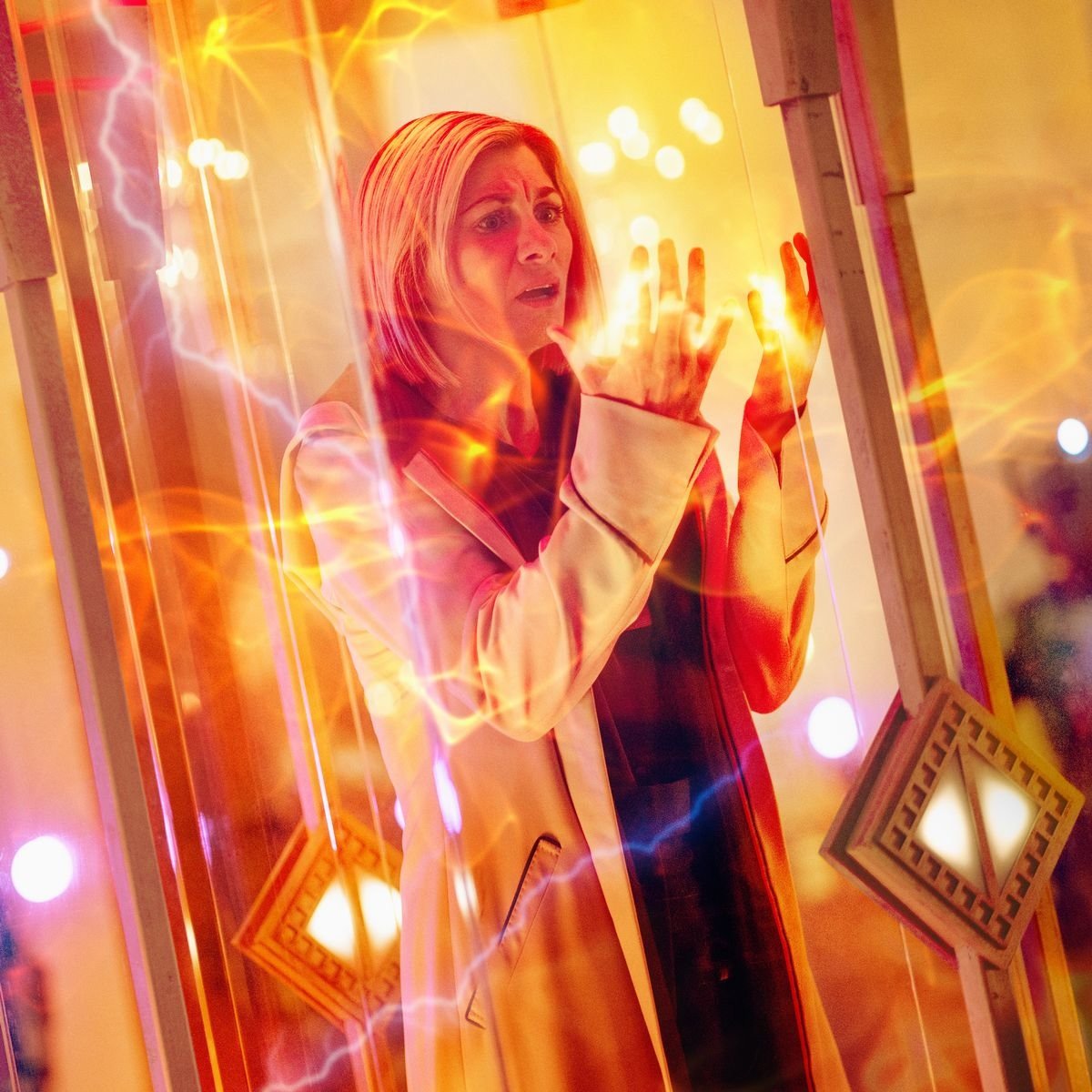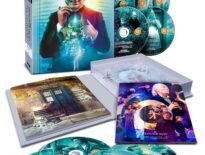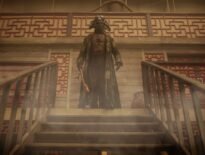Among the political machinations over the last few weeks, which have played out like an unfolding, unbelievable, absurd, and terrifying political drama, The Power of the Doctor has been somewhat of a relief. It’s a fast-paced adventure story with a frankly bonkers plot, that somehow manages to be more satisfying than much of the Chris Chibnall/Jodie Whitaker era.
For all the call-backs to the last few years – Sacha Dhawan’s Master, the Lone Cyberman Ashad, Vinder from Flux, the Fugitive Doctor, and the ‘Time Lord’ Cybermen – there was a Trussian level of u-turns here. UNIT has returned to pretty much full funding after being clumsily written out in Resolution. The Daleks are back as an invasion force, despite the Dalek War Fleet being destroyed in the Flux event.
The Timeless Child story arc that cast a shadow over the Whittaker era is not even mentioned, let alone resolved. In fact, the inclusion of mostly classic-era Doctors at ‘The Edge’ seems to suggest they are still the Doctor’s main incarnations, not a myriad of Morbius Doctors, tortured children, Old Uncle Tom Cobley and all. Of course, the ‘explanation’ is that the Doctor’s memory of pre-Hartnell incarnations is hidden. Then how come she can conjure up a convincing Fugitive Doctor hologram? (Whatever, Jo Martin is simply brilliant, if underused again.)
While Dan Lewis (John Bishop) exits in the most underwhelming companion farewell since Mel (more of her later) – why no walk into the sunset with Diane? – Yasmin (Mandip Gill) and the Doctor’s unrequited love is completely sidelined, despite it being such a signposted revelation at the end of Legend of the Sea Devils. If you missed that, then the end of The Power of the Doctor plays out like two good friends saying goodbye rather than two people who are in love with each other parting forever. And I don’t buy this ‘doing the next bit alone’ and Yaz passively nodding. If you love someone deeply, you wouldn’t abandon them to face death (basically) solo. For all of Yaz’s becoming independent and determined spirit in this episode and previous adventures, she once again becomes shrug-the-shoulder compliant in the end.
The Chibnall trick of setting a plot between multiple timelines, locations, and empty planets is in force but somehow manages to be relatively coherent. As is Chibnall’s introduction of a hugely powerful and mysterious thing (a Quoronx) that has never been mentioned before, but the Doctor knows all about and has to explain in a technobabbly speech, and that kind of works here too. That’s because the pace is frantic, much of the plot holes and fudges come and go when the next spectacle appears.

For long-term Doctor Who fans, the inclusion of ’80s companions Ace and Tegan is a thrill (particularly the glimpses of them interacting with versions of their Doctors). Also, the cameos of the First, Fifth, Sixth, Seventh, and Eighth Doctors bring a sense of celebration to this BBC centenary special. (I imagine Colin Baker did it for the love of Who, rather than the corporation that treated him so badly in the 1980s.) Great to see glimpses of all of them, but any moments of McGann on-screen are precious. They seem to get David Bradley back for all occasions. We can only hope a full episode with McGann is part of the RTD2 plans.
The AA-like meeting at the end of the Doctor’s former companions is another cockle-warming toast to all of fandom. But for most viewers, it was a bunch of people in a room with no explanation as to who they were. Except, isn’t that Carmel – Bonnie Langford – from EastEnders? What’s she doing there? You just can’t conjure up nostalgia for something you have never experienced, unless you put time and effort into the story, like they did with Sarah Jane in School Reunion. And where was Polly (Anneke Wills)? And Martha? And Mickey– yes, probably best not to go there.
Despite this being Whittaker’s final regular appearance as the Doctor, she seemed a little sidelined in all the spectacle. The Master was given much better lines and profile, with the Thirteenth Doctor disappearing in the middle only to return in other forms (another repeated Chibnall trope). The sad fact is that this episode is likely to be boosted through iPlayer views, not with people wanting to see how Jodie exits but to cheer at David Tennant’s return. Jodie deserves more, frankly. But her Tigger-and-teatime turn as the Doctor never fully meshed into a convincing incarnation. Jodie is capable of so much more, but was given such a passive and (slightly) annoying persona that never transcended the too often sub-par material.
But, you know, despite all that, I rather enjoyed it. And so did my children (son aged 11 and daughter, seven). My son declared that it was a much better episode than he’d seen recently. My daughter, who had stopped watching all episodes and eras after the Flux (who can blame her?), declared that she enjoyed it and had, ‘missed Doctor Who.’ For all the fans who – whatever the BBC and production team deny – have fallen away over the last five years, I hope the teasing of Tennant brings them back. And the brilliance of Russell T Davies as showrunner and lead writer keeps them there.
Well, goodbye, Jodie. You did quite well, quite well (given the circumstances and material). But it’s reassuring to know that the future is in safe hands…
(And I don’t mean Rishi Sunak.)



